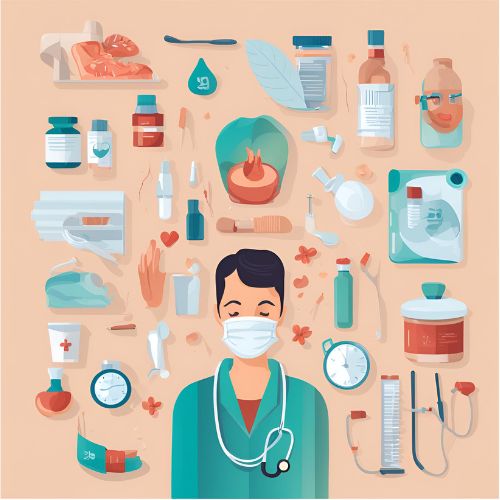
In today’s fast-paced world, the concept of DIY (Do-It-Yourself) has extended beyond home improvement and crafts to encompass health care. DIY health care involves individuals taking proactive steps to manage their own health and well-being through accessible and effective strategies. This article explores various aspects of DIY health care, including its benefits, practical tips, and the importance of informed decision-making in maintaining personal health.
📊 Understanding DIY Health Care
🏥 What is DIY Health Care?
DIY health care refers to the practice of individuals actively participating in their health management outside of traditional medical settings. It involves adopting preventive measures, making lifestyle adjustments, and using readily available resources to improve health outcomes.
👩⚕️ Empowerment Through Knowledge
DIY health care empowers individuals by providing them with knowledge and tools to take charge of their health. It encourages proactive habits that can prevent illnesses and promote overall well-being.
📋 Benefits of DIY Health Care
🩺 Prevention and Early Detection
✅ Regular Health Screenings
- Self-Examinations: Techniques for performing self-examinations to detect early signs of diseases such as breast cancer or skin conditions.
- Home Testing Kits: Availability of home testing kits for conditions like blood pressure monitoring, diabetes, and cholesterol levels.
✅ Healthy Lifestyle Choices
- Nutrition: Guidance on balanced diets, portion control, and meal planning to maintain optimal health.
- Physical Activity: Tips for incorporating regular exercise routines into daily life to improve cardiovascular health and overall fitness.
🩺 Self-Care Practices
✅ Managing Chronic Conditions
- Medication Adherence: Strategies for managing medications and adhering to prescribed treatment plans.
- Symptom Monitoring: Techniques for monitoring symptoms of chronic conditions and seeking medical advice when necessary.
✅ Stress Management
- Relaxation Techniques: Methods such as meditation, deep breathing exercises, and yoga to reduce stress levels.
- Mindfulness: Practices that promote mental well-being and emotional resilience.
💵 Cost-Effectiveness and Accessibility
💰 Financial Benefits
DIY health care can be cost-effective by reducing the need for frequent medical consultations and emergency visits. It allows individuals to manage their health within budgetary constraints through preventive measures and early intervention.
💰 Access to Information and Resources
✅ Online Resources
- Health Websites: Access to reputable health websites offering information on symptoms, conditions, and treatments.
- Mobile Apps: Availability of health apps for tracking fitness, nutrition, and medication schedules.
✅ Community Support
- Support Groups: Online and offline communities for sharing experiences, advice, and emotional support related to health issues.
- Peer-to-Peer Networks: Platforms where individuals can connect with others facing similar health challenges.

📝 Practical Tips for DIY Health Care
🏃♂️ Physical Health
✅ Exercise Regimen
- Icon: 🏋️♂️
- Description: Incorporate at least 30 minutes of moderate-intensity exercise most days of the week, such as brisk walking, jogging, or cycling.
✅ Healthy Eating Habits
- Icon: 🥦
- Description: Eat a balanced diet rich in fruits, vegetables, whole grains, and lean proteins. Limit intake of processed foods and sugary beverages.
🧘♀️ Mental and Emotional Well-being
✅ Stress Reduction Techniques
- Icon: 🌿
- Description: Practice relaxation techniques such as mindfulness meditation, deep breathing exercises, or yoga to manage stress effectively.
✅ Quality Sleep
- Icon: 🛌
- Description: Aim for 7-9 hours of restful sleep each night by maintaining a regular sleep schedule and creating a relaxing bedtime routine.
📅 Preventive Health Care
✅ Regular Check-Ups
- Icon: 🏥
- Description: Schedule regular preventive health screenings and vaccinations as recommended by healthcare professionals to detect health issues early.
✅ Health Monitoring
- Icon: 📊
- Description: Use health monitoring devices such as blood pressure cuffs, glucose meters, or fitness trackers to track vital health indicators regularly.
🌟 Importance of Informed Decision-Making
🧠 Educating Yourself
✅ Research and Learning
- Icon: 📚
- Description: Stay informed about health conditions, treatments, and preventive measures through reliable sources and healthcare providers.
🧑⚕️ Seeking Professional Advice
✅ Consulting Healthcare Providers
- Icon: ⚕️
- Description: While practicing DIY health care, consult healthcare professionals for guidance, especially for serious symptoms or concerns.
🏁 Conclusion
DIY health care empowers individuals to take an active role in managing their health through preventive measures, healthy lifestyle choices, and informed decision-making. By adopting DIY health care practices, individuals can enhance their overall well-being, reduce healthcare costs, and promote a healthier lifestyle. However, it’s essential to strike a balance between self-care and professional medical advice to ensure comprehensive health management. Embracing DIY health care is not just about independence but also about fostering a proactive approach to personal health that leads to long-term benefits and improved quality of life.
3.5



















